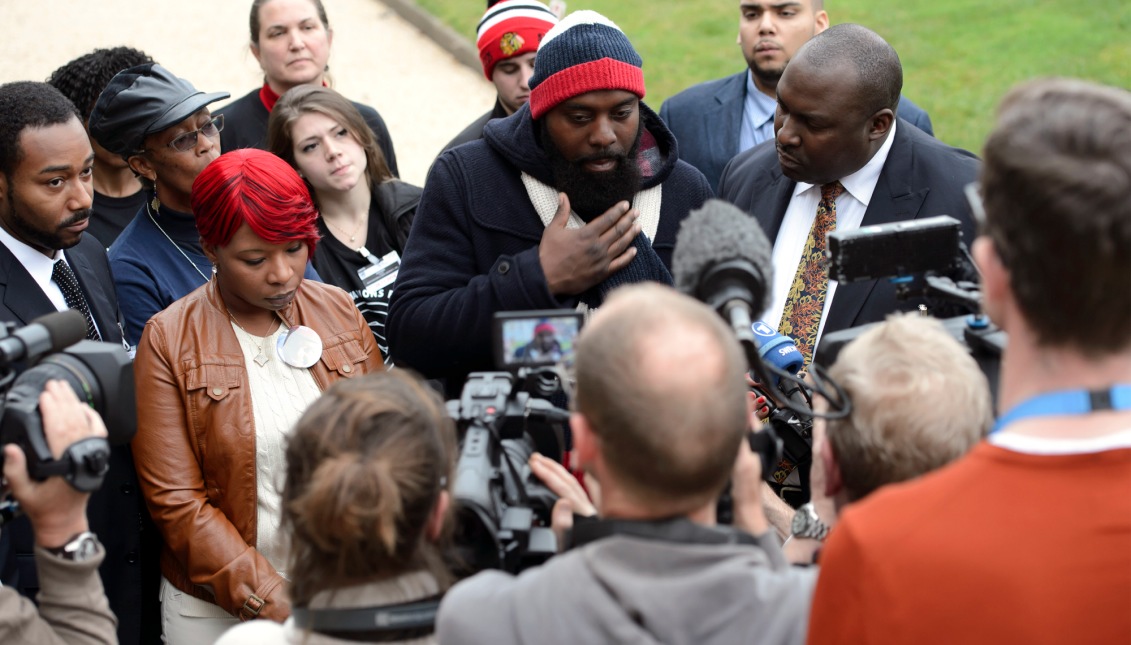
Are we human rights violators?
MÁS EN ESTA SECCIÓN
A delegation from the Obama administration is slated to appear in front of the United Nations Committee Against Torture today, the first time since Obama took office in 2009. On the table is an accounting of attempts to address or reverse Clinton and Bush era policies that, according to the ACLU, “led to gross violations of human rights,” including extraordinary rendition, torture, secret detentions and other practices that violate strictures of the anti-torture treaty the U.S. ratified 20 years ago.
The UN’s questions about torture and ill-treatment aren’t limited to previous administrations’ policy, however. Obama, whose first presidential campaign included promises to close down Guantanamo, has kept the controversial prison open, with detainees subject to indefinite detention.
Further, the Nobel Peace prize-winner’s administration will be asked to explain domestic policies which are also viewed as non-compliant. More than 65 “shadow reports” have been submitted to the UN through the U.S. Human Rights Network, including those authored by the Center for Constitutional Rights, American Friends Service Committee and the National Conference of Black Lawyers, among many others. Some of the practices under scrutiny — especially those involving treatment of immigrants and asylum seekers — have escalated precipitously during the Obama administration.
The U.S. delegation will be asked to address:
• Racial profiling by police forces. “Federal policy fails to protect against it,” says the ACLU shadow report. “In particular ... the U.S. Department of Justice has failed to issue a revision to its 2003 Guidance on the Use of Race by Federal Law Enforcement.”
The ACLU cites border enforcement profiling, for example, in which the “federal government asserts near limitless authority to conduct suspicionless investigative stops and searches within a “reasonable distance” from the border; outdated federal regulations define this distance as 100 air miles from any external U.S. boundary. This area includes roughly two-thirds of the U.S. population,several entire states, and nine of the country’s ten largest metropolitan areas.”
The militarization of police extends further than just crowd-control situations. The same report cites “the use of paramilitary weapons and tactics” in the War on Drugs wherein SWAT teams execute search warrants, 60 percent of them drug related. “Of the people impacted by SWAT deployments for warrants, at least 54 percent were minorities. When data was examined by agency (and with local population taken into consideration), racial disparities in SWAT deployments were extreme. In every agency, African Americans were disproportionately more likely to be impacted by a SWAT raid than whites, sometimes substantially so. For example, in Allentown, Pa., African Americans were nearly 24 times more likely to be impacted by a SWAT raid than whites were,” said the ACLU report.
• Sexual abuse of immigrant detainees. The ACLU shadow report gives as an example of failures in follow-through. “In 2013, the US government extended the protections of the Prison Rape Elimination Act (PREA)to immigration detainees (although final regulations were not issued until 2014).However, these protections have not been fully implemented; notably, privately-owned contracted detention facilities and local jails have not been required to fully and immediately comply with PREA’s standards.”
• Abuse and ill treatment of immigrant minors by authorities. Immigrant children as young as 3 have been denied access to legal counsel and have had to navigate the deportation process alone. Along with this are instances of ill-treatment of unaccompanied minors while in short-term custody of Customs and Border Protection (CBP): “unaccompanied children have been subjected in inhumane treatment by CBP upon arrival in the United States. In June 2014, the ACLU and several advocacy organizations filed a complaint with the Department of Homeland Security (DHS) regarding the abhorrent treatment of unaccompanied minors at border patrol stations,” the ACLU’s shadow report states.
Further, “the complaint, based on 116 cases, found that ‘approximately one in four children included in this complaint reported some form of physical abuse, including sexual assault, beatings, and the use of stress positions by CBP officials . . . 70 percent reported being held beyond the legally mandated 72-hour period.’”
• Extended solitary confinement for immigrant detainees. From the ACLU report: “In March 2013, The New York Times reported that on any given day, more than 300 immigrants are held in solitary in just the 50 largest immigration detention facilities – and nearly half of those are isolated for 15 days or more. The United Nations Special Rapporteur on Torture has described solitary confinement of 15 days or more as amounting to torture, because of the risk of permanent psychological harm from such extended isolation.”
Many Americans will bristle at the notion of being asked by an international body to account for possible human rights violations. For many other Americans — like Mike Brown’s parents, who filed a shadow report on the shooting of their son — it represents a hope for justice from a system that has too often seemed to shield and offer impunity to aggressors.
But no matter where our understanding falls in this wide spectrum, it behooves all of us as citizens of this nation— and as global citizens — to make sure the U.S. delegation answers the questions thoroughly, honestly and with an eye to really see those ways in which we have failed those in our care.






DEJE UN COMENTARIO:
¡Únete a la discusión! Deja un comentario.